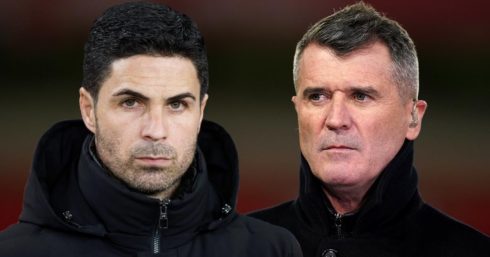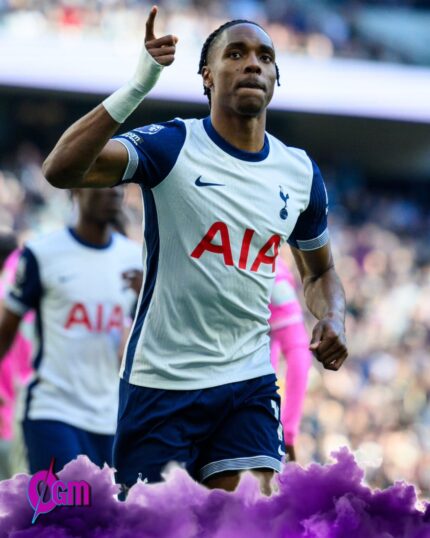Roy Keane has taken aim at Arsenal manager Mikel Arteta for his criticism of referee Michael Oliver following Arsenal’s 2-2 draw with Manchester City. The match was marred by controversy when Leandro Trossard was sent off just before half-time for kicking the ball away, earning a second yellow card. Arteta was vocal in his frustration, particularly pointing out what he saw as inconsistency in Oliver’s decisions compared to similar incidents, notably Jeremy Doku not receiving a booking for a similar offense.
Speaking to Sky Sports after the match, Arteta hinted at unfair treatment from the referee. “There were two incidents, very similar. One was very different with a different outcome that forces you to play a game that nobody wanted to watch,” Arteta said, in an apparent dig at Oliver’s officiating. However, when pressed on Trossard’s dismissal, Arteta responded curtly, “You can ask me, but it’s that obvious I don’t have to comment.”
Roy Keane’s Call for “Class” from Arteta
Reacting to Arteta’s comments, former Manchester United captain and Sky Sports pundit Roy Keane was unimpressed. Roy Keane urged Arteta to show more composure and accept the referee’s decision, criticizing the Arsenal boss for joining a growing trend of managers complaining about officiating decisions after matches. Keane said, “Managers are coming out every week saying every decision is against them. Just come out and accept it.”
Roy Keane’s key point was that Arteta, as a high-profile manager, should lead by example. “Deep down he’ll be satisfied with a point. Show a bit of class, manager of Arsenal. He probably deserved the red card; we reacted well and we move on. That’s the end of it. Take your medicine and move on. Show a bit of class,” Keane insisted. His remarks highlight his disdain for the increasing regularity of post-match referee criticism in the Premier League.
A Growing Trend of Managerial Complaints
Roy Keane also expressed his frustration with the broader issue of Premier League managers increasingly blaming referees for unfavorable outcomes. He argued that managers should acknowledge when their players make mistakes instead of blaming officiating. “Wouldn’t it be good if a manager came out after a game and just said: ‘Yeah, you know what, he was a bit silly, it was a yellow card,'” Keane suggested.
He added, “Every manager is coming out every week going: ‘No, it wasn’t a foul, it wasn’t this, something happened five minutes earlier.’ Just come out and be big enough… players do daft stuff on a football pitch, come out and show a bit of class and say: ‘The referee gave him a chance to send him off. We’re disappointed, but we move on.'” Roy Keane’s comments reflect his belief that accountability should be a bigger part of post-match analysis from managers.
Impact of Trossard’s Red Card and the Game’s Outcome
Trossard’s sending off undoubtedly shifted the dynamic of the match. Arsenal went into the break leading 2-1 after goals from defenders Riccardo Calafiori and Gabriel had overturned Erling Haaland’s early opener. However, Arteta was forced to adjust his tactics following the red card, setting his team up in a highly defensive 5-4-0 formation for the second half.
Despite Manchester City’s dominance in possession and shots, Arsenal’s defense held firm, limiting City to long-range efforts. For a time, it appeared the Gunners were heading for a notable victory, only for John Stones to score a 98th-minute equalizer that salvaged a point for City. The result kept Manchester City at the top of the Premier League table and left Arteta visibly frustrated by the late goal and the earlier red card decision.














